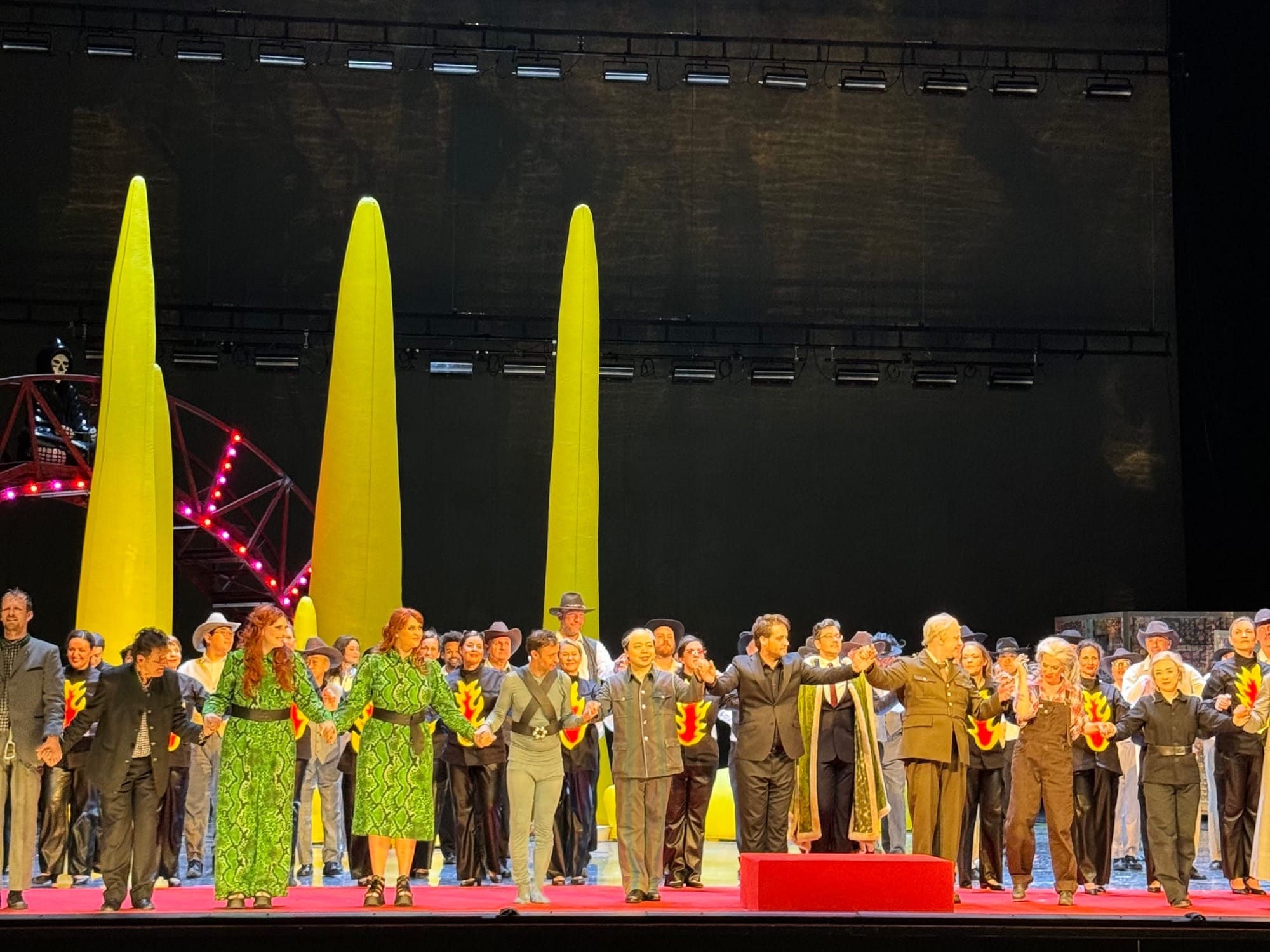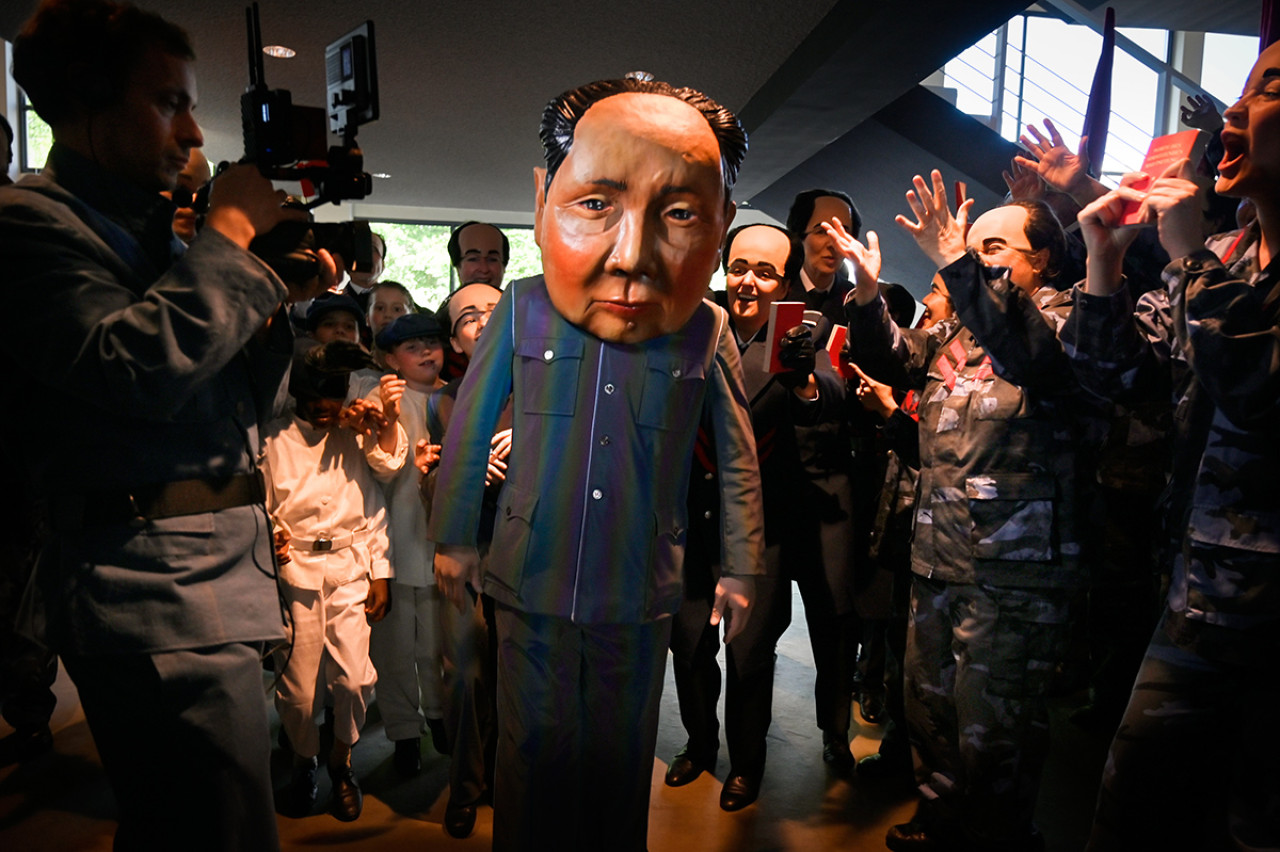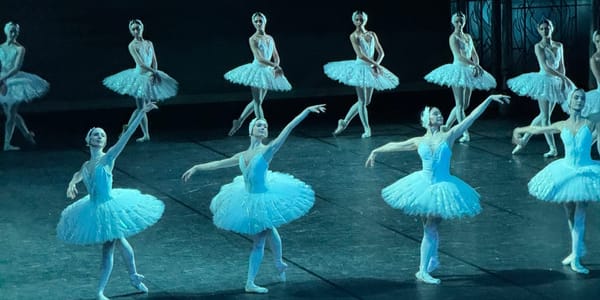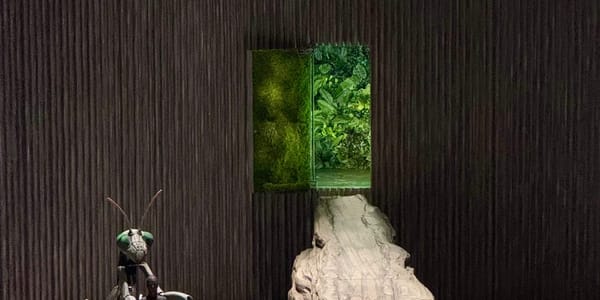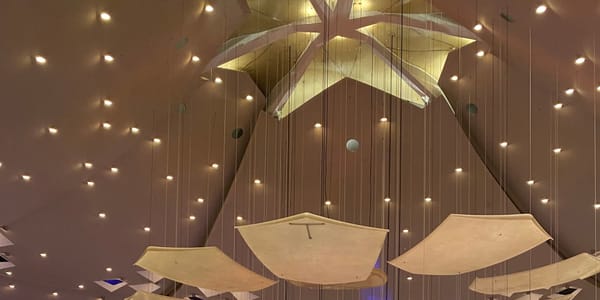Nixon in China at Deutsche Oper Berlin
With all this grand geopolitical storytelling, “Nixon in China” does not let us forget that its characters are, first and foremost, people. There‘s a lot of raw emotion and intimate personality on stage.

⭐️⭐️⭐️⭐️
🎭 Nixon in China
🎶 John Adams
🏛️ Deutsche Oper Berlin
🗓️ 28.06.2024
John Adam’s “Nixon in China” at Deutsche Oper Berlin is a truly overstimulating and wildly entertaining take on the historic 1972 meeting between Mao and Nixon: A maximalist wet dream which ties together opera, comedy, performance art, and live broadcasting fit for the short-form vertical media landscape we live in. While the staging seems chaotic, it perfectly matches the energy of the music and libretto and (almost) retains cohesion throughout.
The opera begins with a video projection of a Mao-adoring fan club, which turns out to be a live feed merging into opening film credits accompanying the overture. This live video feed is a format which continues throughout the performance and leads to some gold star backstage comedy in between the first and second acts, giving a literal glimpse behind the curtain.
The staging is packed full of popcultural references. My favorite: an AI-generated video of nude authoritarians, dictators, neoliberal champions, and other political figures of the past 80 years, engaged in an orgy reminiscent of Kanye West’s star-studded and highly controversial 2016 music video and sculpture. Unsurprisingly, given the source material, the performance is also strong in political commentary on US-China (and Taiwan) relations. Adams himself depicted Nixon and the US in a critical way, but this staging seems to underscore an ongoing geopolitical shift—at a time in which China is churning out five-year plans under a third Xi term, while in the US, two should-be pensioners running for US president are causing collective anxiety in public and full-on panic in political circles (first debate anyone?).
In this context, there is a feeling that Mao is given an ecstatic glimpse into 21st-century China under Xi Jinping. This era-crossing connection is deepened by Mao singing about his 1930s Long March experience after seeing the Long March 2F launched into space from stage—the first Chinese rocket to carry humans, and a successor of Mao‘s own rockets. Never mind that a head alluding to Xi Jinping is seen bouncing around the stage in pivotal scenes. Relatedly, I appreciated the critical commentary on Kissinger’s legacy and person—a refreshing engagement with United States imperialism, at a time when postcolonial narratives and capitalist-imperialist critique is surging in public discourse. (What a time to be alive!)
With all this grand geopolitical storytelling, “Nixon in China” does not let us forget that its characters are, first and foremost, people. There‘s a lot of raw emotion and intimate personality on stage—perhaps most strongly visible when Pat Nixon intervenes in a performance of proletariat-dancers-turned-sausage-ballet when young dancers/sausages are flogged and Pat, almost lovingly, cleans their wounds by literally showering them with a garden hose.
Finally, I find it exhilarating to be in an audience experiencing discomfort and uncertainty. Not in the classic “artists are nude and covered in blood and slime” sense (though this also happened here), but in the “what do I do in this too-long moment of silence and no stage action save a curtain projection of time speeding along?“ sense. It‘s immensely stressful being made aware of your own impermanence and importance and imagining a world in the year 200 million CE. Will we have evolved into shrimp (queue “everything becomes a crab” meme of evolutionary carcinization)? “How much of what we did was good?“ We’ll never know.
